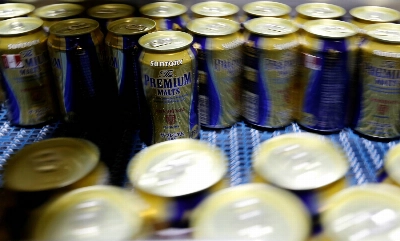'The death penalty is legal murder, and as someone who has stood by and watched it being carried out, I am an accessory to murder."
As a volunteer prison chaplain accredited by the Justice Ministry, Makoto Tanaka (not his real name) knows all too well the reality of life behind bars in Japan. He has heard the cries of those in need of help; he has become their friend, their mentor.
But his role also requires him to be present at executions, and to witness, feel and share the extreme suffering of all those involved, whether is the condemned inmate, other prisoners, the wardens or even the prison governors who must oversee the legalized killings.
"All the justice minister has to do is stamp the approval for an execution," said Tanaka. "But if the justice minister wants to execute someone so much, he or she should do it personally. Or the judge who handed down the death sentence in the first place should do it. These people have no idea how painful it is for the wardens to execute someone and for us to watch."
Tanaka has long been a counselor for those on death row. He has often become close to inmates, and is sometimes the only person to whom they can turn. As a result, he said he has heard some stories that have made him seriously doubt some condemned men's guilt, while he feels others do not deserve the maximum penalty.
Changing criteria
"The gravity with which different crimes are treated and the criteria for capital punishment changes with the times," Tanaka said. "During the years after the war, people who committed crimes that should have merited sentences of five or six years, instead got a death sentence. And I am afraid we are going back to that era again."
Speaking from his firsthand experiences, Tanaka said he believes that everything related to the justice system has become more strict, even the way the prisoners are treated.
"Death-row inmates used to be able to pursue a small hobby, like keeping a pet bird, for example," Tanaka noted. "But that is impossible now. They can have only three books at a time in their cells, the number of letters they are allowed to write is restricted, as are all their visits."
Death-row inmates are only allowed visits from close relatives, lawyers and chaplains. In many cases, however, the prisoners cut their personal and legal ties with their families because they don't want to cause them further grief or trouble. This leaves only their lawyers and chaplains.
"I want to continue being a chaplain for those inside the prisons so they have some connection to the outside world," said Tanaka. "And that is why I must use a pseudonym."
As government-accredited prison visitors, chaplains in Japan are expected not to speak out on controversial matters. A chaplain who transgresses this tacit understanding will immediately have their visiting privileges withdrawn, as happened to the Rev. Kenji Hayashi.
Hayashi was banned from serving as a prison chaplain in 1969, after he started to campaign for an appeal for Tamotsu Okabe, who was arrested in 1955 and sentenced to death in 1962 for the murder of a family of six in Niho, Yamaguchi Prefecture, in 1954. From the outset, Okabe consistently denied his guilt, and insisted that he was tortured into confessing. However, nobody believed him.
Warned to desist
Then, toward the end of 1967, Hayashi began to correspond with Okabe. The more he heard, and the more information he gathered himself, the more he became convinced of Okabe's innocence. That was when he began to receive warnings to drop the issue.
Hayashi said he was summoned before the prison governor several times and told to stop what he was doing. Even the head of Zenkoku Kyokaishi Renmei (the national chaplains' association) told him to back off. But then, when he refused to comply, he was struck off the official list of prison chaplains.
"It was like thought control before World War II," said Hayashi. "Such a thing must not be tolerated in the era of democracy.
"I think that what I did was completely natural as a human being; I was helping an innocent man. Why is that not allowed?"
Finally, in 1972, Hayashi's unswerving commitment was vindicated when, after the Supreme Court ordered Okabe to be retried in the High Court, the formerly condemned man was acquitted of the crimes and freed. Nevertheless, Hayashi is still banned from acting as a prison chaplain.
Looking back on those events, Hayashi said: "There are two cruelties in this modern world. One is the state killing hundreds in the name of war. The other is the death penalty, which is the government murdering a person on behalf of another's vengeance in the name of justice."


















With your current subscription plan you can comment on stories. However, before writing your first comment, please create a display name in the Profile section of your subscriber account page.